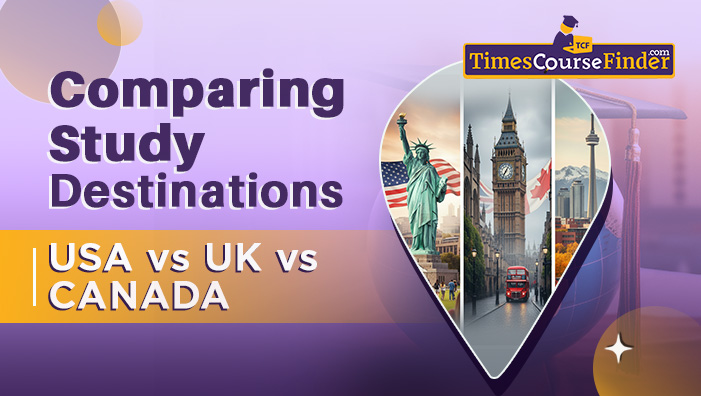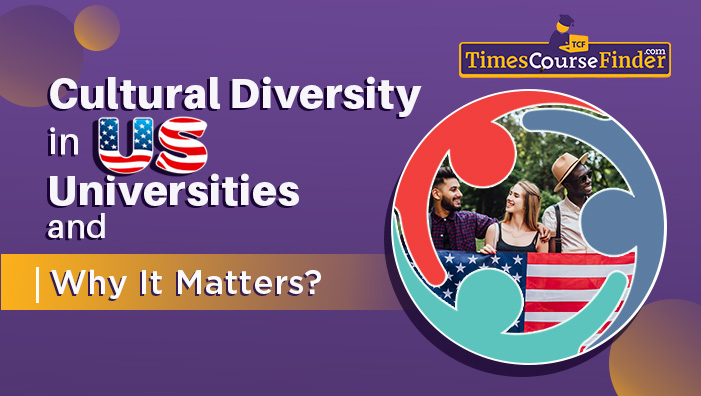
Why the USA Is Best for Higher Education 2025
The USA offers globally recognized universities, flexible programs, and unmatched research and career opportunities. Discover why the U.S. remains the top choice for higher education.
 TCF SEO
TCF SEO 
Choosing where to study is one of the most important decisions a student makes. For decades, the United States has remained a leading destination for international students, and with good reason. The country offers an unmatched combination of academic excellence, innovation, and long-term career opportunities. Whether you're planning to pursue undergraduate or postgraduate studies, understanding why the U.S. stands out can help you make a confident, informed choice.
This blog breaks down the key reasons behind the USA higher education quality. It explains why the USA is the best place for higher education from both academic and practical perspectives.
Table of Content
Academic Excellence That Sets Global Standards
A Flexible and Student-Centered Education System
Innovation and Research Opportunities
Global Recognition and Career Advantages
Top Universities with Diverse Options
A Multicultural Learning Environment
Supportive Campus Life and Student Services
Post Graduation Work and Residency Options
1. Academic Excellence That Sets Global Standards
The United States is home to some of the world's most recognized and well-respected institutions. With more than 4,000 colleges and universities, students can choose from a broad range of programs tailored to every field of study. Whether you aim for a liberal arts college or a top-tier research university, you’ll receive a degree that holds weight around the world.
Learn more about global rankings and top schools: Top Universities in USA
This reputation is not only due to name recognition. It’s built on research output, teaching quality, faculty expertise, and innovation. American institutions continuously update curricula to match market trends and industry needs, making sure students graduate with both knowledge and relevant skills.
2. A Flexible and Student-Centered Education System
One of the most significant aspects of the US education system is its flexibility. Unlike rigid systems in many countries, the U.S. allows students to explore different subjects before deciding on a major. This approach is handy for students who are unsure of their long-term academic or career goals.
The structure encourages interdisciplinary learning. For instance, you could major in Computer Science while taking electives in psychology, economics, or art. This system helps develop well-rounded graduates who can adapt to various work environments.
For a closer look at how the system works: Education System
3. Innovation and Research Opportunities
U.S. universities lead the world in innovation, with billions of dollars invested in research every year. Students have access to state-of-the-art labs, facilities, and funding, even at the undergraduate level.
This is a significant advantage for students pursuing degrees in STEM, medicine, engineering, or business. Many institutions also run partnerships with tech companies, hospitals, government bodies, and nonprofits, providing students with real-world experience before graduation.
When students and professors collaborate on research, it not only enhances learning but also builds skills that translate directly into strong resumes and future careers.
4. Global Recognition and Career Advantages
A degree from the U.S. opens up international career opportunities. Employers across the world value graduates from American universities because of their training, practical experience, and critical thinking skills.
The best education USA institutions provide doesn’t end with the classroom. Students are encouraged to participate in internships, volunteer work, and community engagement. These experiences contribute to a stronger career profile and allow international students to gain experience in competitive industries like finance, healthcare, tech, and media.
5. Top Universities with Diverse Options
The United States has something for everyone. Whether you're looking for Ivy League institutions, public research universities, or private liberal arts colleges, there’s a match for every academic profile and budget. Some of the top universities USA include:
- Massachusetts Institute of Technology (MIT)
- Harvard University
- Stanford University
- University of California, Berkeley
- Columbia University
These institutions regularly appear in American university rankings and offer world-class faculty, modern facilities, and active alumni networks.
6. A Multicultural Learning Environment
Diversity is one of the key strengths of studying in the U.S. Campuses welcome students from across the globe, creating vibrant communities where cultural exchange and collaboration thrive. You’re not just learning from textbooks, you’re learning from your peers, who bring perspectives from every continent.
This multicultural environment builds cross-cultural communication skills and global awareness, which are essential in today’s job market.
Find out how diversity shapes education in our article: Why Study in USA
7. Supportive Campus Life and Student Services
Beyond academics, universities in the U.S. are known for their student support systems. From mental health counseling and career services to academic advising and international student offices, institutions invest in helping students thrive.
Orientation programs, language support, and career coaching are often tailored to international students, ensuring a smoother transition into academic and social life in a new country.
8. Post Graduation Work and Residency Options
Another reason many students choose the U.S. is the opportunity to work after graduation. With Optional Practical Training (OPT) and other visa pathways, students can gain professional experience in their field before returning home or pursuing longer-term career options in the U.S.
This ability to stay and work enhances the USA higher education quality, especially for those seeking to build global careers or gain international work experience.
Conclusion
The combination of world-class institutions, flexible learning, and practical training makes the U.S. one of the best places for higher education. From research opportunities and career pathways to student life and diversity, the value of studying in the U.S. goes far beyond the classroom.
If you're considering your next academic step and want to benefit from the best education USA institutions offer, it's worth exploring your options now. With the proper guidance and preparation, you can join the millions of international students who have used a U.S. education to launch successful, global careers.
Need help finding the right university, program, or scholarship? Talk to our advisors today.
FAQs
- Why is the US best for education?
The United States is home to top-ranked universities offering world-class research, flexible learning options, and globally recognized degrees. Students gain practical skills and industry exposure that enhance employability.
- Why did you choose to study in the US for higher education?
Students choose the US for its innovation-driven education, diverse campus culture, and post-study work opportunities through programs like OPT. It’s an ideal mix of academic excellence and real-world learning.
- Why is the USA the best country for international students?
The USA offers unmatched diversity, strong student support services, and a multicultural environment that helps international students adapt, grow, and succeed both academically and professionally.
- What are the advantages of studying in the USA?
Key advantages include flexible course structures, access to research funding, globally valued degrees, and post-graduation work opportunities. Students also benefit from rich cultural exposure and networking possibilities.




